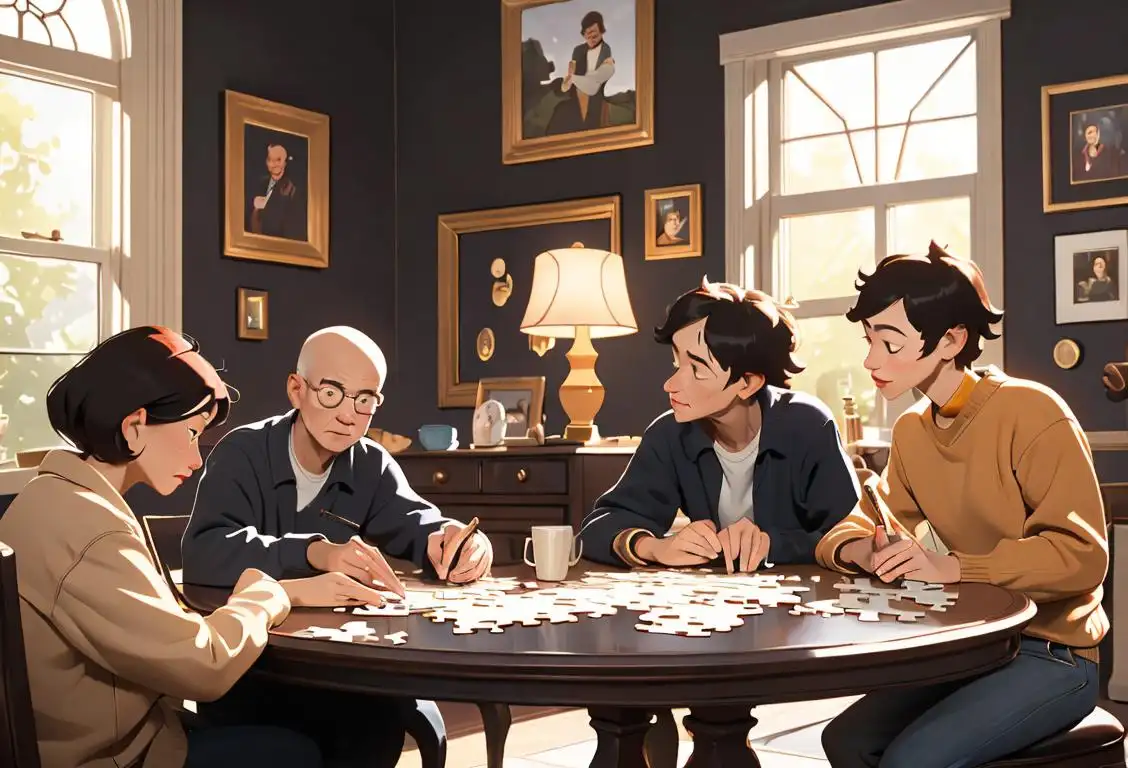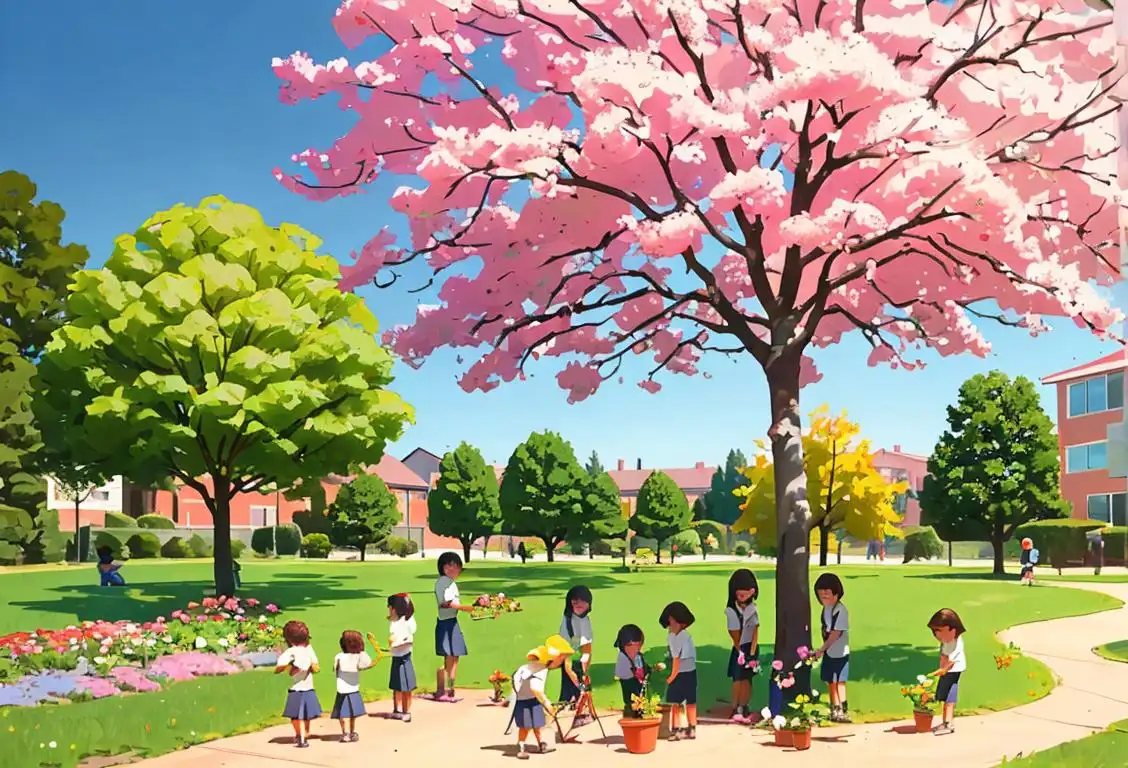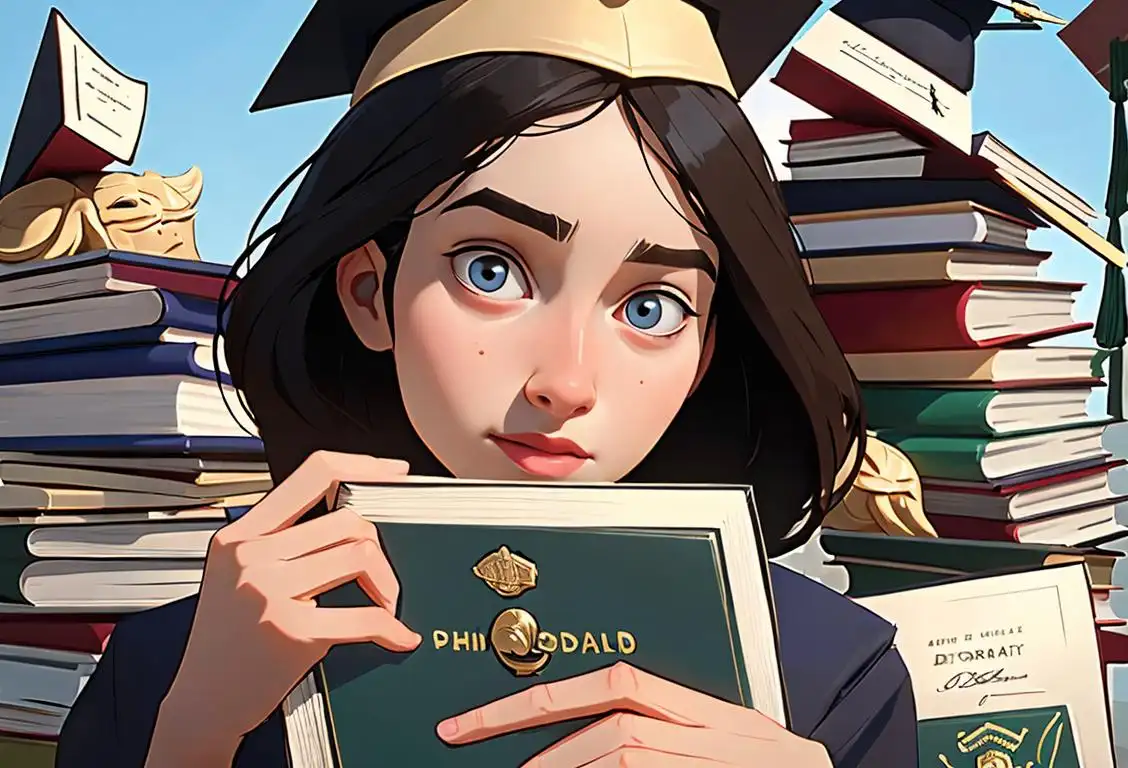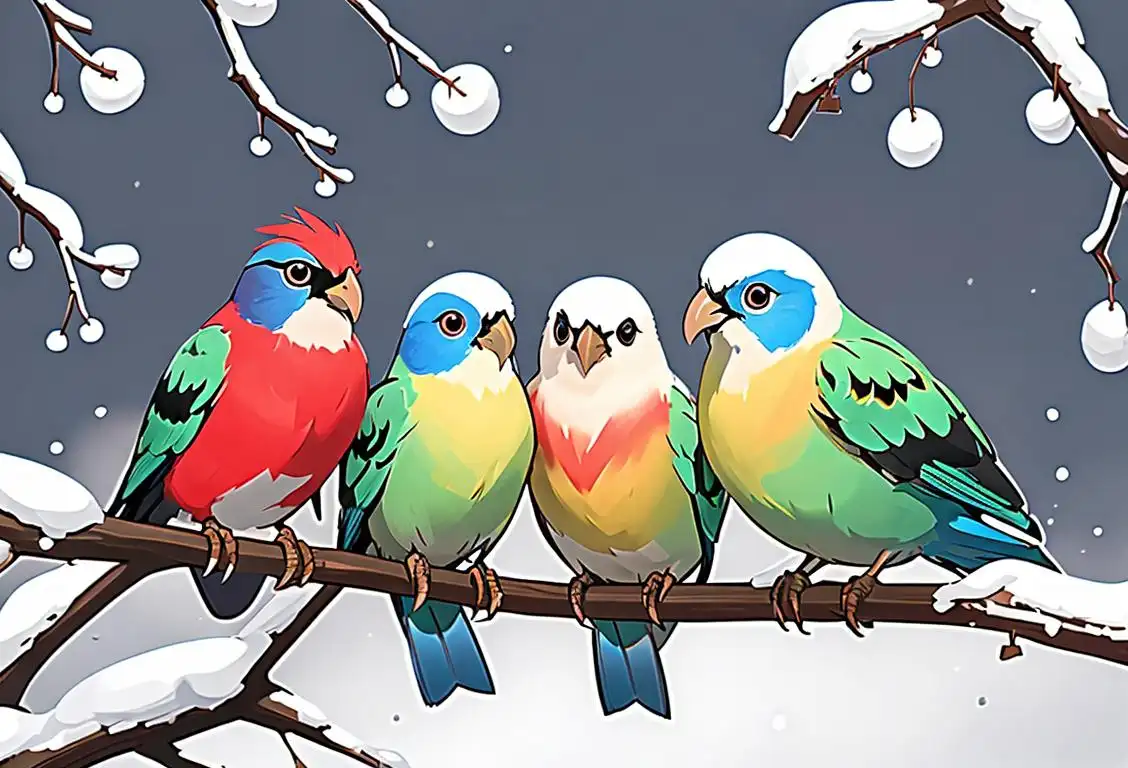National Puzzle Day

Hello there fans of brainteasers and line-folders, logic aficionados, and lovers of a good cryptic challenge! If you've ever spent hours puzzling over a hearty jigsaw, cryptic crossword, or mental maze, then you've found your home – welcome to National Puzzle Day!
When is Puzzle Day?
It's national puzzle day on the 29th January.
A Brief History of National Puzzle Day
While many of us diligently reserve time to watch our favorite sitcoms, carve pumpkins, or even indulge in a bit of classic nose-picking, National Puzzle Day was born out of a simple intention: to acknowledge the joy and intrigue that puzzles deliver in our lives. On January 29th, people across the globe put their Sudoku aside, push those chess pieces back in the box, and come together to honor their shared love for puzzling challenges.
Why, I hear you ask? Well, because puzzles are awesome, that's why! They offer an outlet for stress, can improve memory and cognitive function and have even been used to improve emotional wellbeing. However, perhaps the best part about puzzles is their uncanny ability to connect people. Whether in shared conquest or friendly competition, puzzles rarely fail to bring minds together in a tangle of shared enthusiasm and grit.
Puzzlingly Popular: The Proof is in the Pudding! (Or should we say, in the puzzle pieces...)
So, how do we know that people really dig puzzles? Well, we've done a bit of digital digging to find out. And the numbers don't lie: we detected a whopping 7436 online mentions of National Puzzle Day – and that's just on 29th Jan 2021 alone!
Endless Entertainment
The fun of puzzles isn't just isolated to one day though. You can integrate puzzle-solving into your day-to-day routine. Consider launching a lunchtime Sudoku challenge in your workplace or organizing a Friday puzzle night with friends or family. So, what're you waiting for? Grab that jigsaw, dust off that Rubik's cube, or marshalled towards that crossword, and let's get puzzling!
History behind the term 'Puzzle'
1743
The Birth of the Jigsaw Puzzle
In the year 1743, John Spilsbury, a British engraver and mapmaker, created the first known jigsaw puzzle. He mounted a map on a thin sheet of wood and used a saw to cut out the boundaries of countries, creating a puzzle-like experience. Initially, the purpose of these puzzles was mainly educational, as they were designed to teach children geography.
1767
Puzzles Gain Popularity
Around the year 1767, puzzles started gaining popularity as a form of entertainment for adults. Cartographers began to produce 'dissected maps,' which were essentially maps sliced into pieces to be assembled. These puzzles became a fashionable pastime in both England and the United States, often utilized for socializing and mental exercise during gatherings.
19th Century
The Rise of Mechanical Puzzles
During the 19th century, several inventors introduced mechanical puzzles. These puzzles were made of different materials and consisted of interlocking pieces that required intricate maneuvers to solve. Mechanisms such as sliding parts or hidden compartments elevated the complexity and challenge of puzzles, captivating enthusiasts looking for both entertainment and intellectual stimulation.
Late 19th - Early 20th Century
Puzzles as a Popular Advertising Medium
In the late 19th and early 20th century, puzzles became a popular advertising medium. Companies began creating puzzles featuring their products and logos, distributing them as promotional items. These puzzles served the dual purpose of promoting brands while providing entertainment, solidifying the cultural impact of puzzles as a universally loved pastime.
Early 20th Century
Crossword Puzzles Enter the Scene
In the early 20th century, crossword puzzles emerged as a new type of word puzzle. Arthur Wynne, a British journalist, published the first crossword puzzle in the Sunday edition of the New York World newspaper in 1913. Crossword puzzles quickly gained popularity, becoming synonymous with brain-teasing challenges and appearing in various newspapers around the world.
20th Century
Puzzles Continue to Evolve
Throughout the 20th century, puzzles continued to evolve and diversify. From the introduction of jigsaw puzzles with irregular-shaped pieces to the development of 3D puzzles and digital puzzles, the range of puzzle types expanded. Puzzles remained a beloved form of entertainment, appealing to people of all ages and cultures, constantly adapting to embrace new technologies and trends.
Did you know?
Did you know? The largest jigsaw puzzle in the world had over 551,232 pieces and measured over 27000 sq. ft! That's one mighty challenge!Tagged
awareness fun loved ones education challenge innovation brainteasersFirst identified
15th July 2015Most mentioned on
29th January 2021Total mentions
7436Other days
Puzzle Day
Drop Everything And Read Day
Schools Tree Planting Day
Phd Welcome Day
Bird Day
Education Day
Medal Of Honor Day
Foundation Day
Pumpkin Day
Memorial Day







